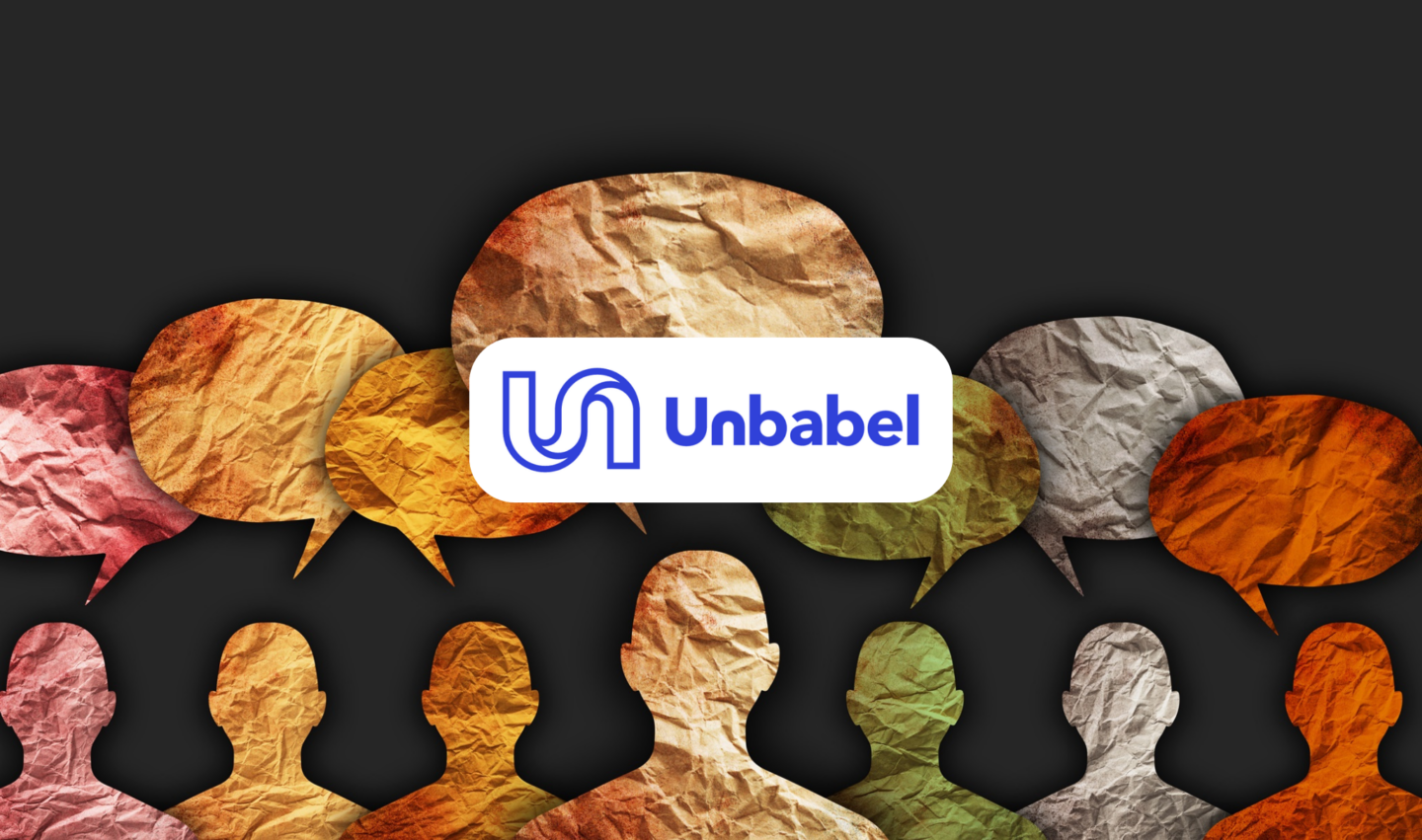In today's interconnected world, providing exceptional customer service across multiple languages is crucial for business growth. With 65% of customers preferring content in their language, translation plays a vital role in achieving global objectives.
Unbabel enhances cross-cultural and global business operations by eliminating language barriers. Through its Language Operations platform, which combines advanced AI and human expertise, Unbabel provides efficient and continually improving high-quality translations, enabling businesses to expand into new markets.
The company's latest release - Quality Reports - offers unparalleled transparency and fast access to valuable quality information by leveraging AI technology. To give us more information on how the feature works and its success and importance for providing excellent customer experience, we chatted with Unbabel's Director of Product Marketing, Phill Brougham.
1. How does Unbabel ensure the accuracy and quality of translations in its reports?
We use an advanced technology application of the industry-standard MQM-QE (Multidimensional Quality Metrics - Quality Estimation) framework to ensure the accuracy and quality of translations in its reports.

Instead of relying on manual evaluations, Unbabel uses machine learning algorithms trained on millions of lines of gold-standard, human-reviewed data across multiple domains and languages.
This ensures that our models possess deep linguistic knowledge, enabling them to deliver highly accurate evaluations of translation quality.
The use of this advanced technology allows Unbabel to provide comprehensive quality scores across all translations, effectively eliminating the industry-wide blind spots in translation evaluation. With this technology, we can offer real-time, automated, and highly accurate insights into translation performance, thus empowering our customers with the ability to make informed decisions about their localization strategies.
2. Can you elaborate on the process of generating quality reports in Unbabel and how it helps customers assess the performance of their translated content? What metrics do you use in the reports?
Customers have real-time access to these AI-generated quality reports through the Unbabel Portal. Unbabel supplements the traditional MQM score with the Customer Utility Analysis (CUA) to visually represent the translation quality. This analysis categorizes translations into different levels of quality, ranging from "Weak" to "Best." Each level corresponds to specific MQM ranges, which gives customers a clear, visual understanding of the translation quality they're receiving.
Unlike traditional methods that only predict proxies like edit distance, our advanced QE technology delivers a true prediction of linguistic quality based on the MQM framework.
The power to proactively identify and address potential quality challenges, make data-driven decisions, and optimize resource allocation empowers businesses to fine-tune their localization strategies and maximize efficiency. By leveraging this capability, organizations gain a competitive edge in the global market, ensuring the right translation quality and improved customer experiences.
3. How does Unbabel address any potential discrepancies or challenges identified through quality reports to continuously enhance the translation process?
We have a streamlined process in place to address any potential discrepancies or challenges identified through Unbabel's quality reports. Our dedicated Language Operations team plays a key role in this process:
When translations are flagged as "poor quality" in our quality reports, our Language Operations team conducts a thorough review. This involves triaging the issue and taking appropriate actions based on its nature. These actions may include requesting human annotations for better understanding, updating customer glossaries, refining our AI translation systems through targeted retraining, or adjusting instructions for editors to prevent similar errors.
In this feedback process, our AI-powered MQM-QE engine also plays a crucial role. Trained on extensive and diverse datasets, this engine can predict translation quality, learn from identified issues, and improve its performance over time - it's being constantly retrained for continuous improvement.
By combining the efforts of our Language Operations team, the insights from our quality reports, and the predictive capabilities of our MQM-QE engine, we ensure a proactive approach to addressing translation quality issues.
This ongoing process allows us to enhance our translation process and deliver high-quality customer results continuously.
4. What role does accurate translation play in ensuring high levels of customer satisfaction and building trust with international customers?
In today's global marketplace, accurate, high-quality translations are crucial in guaranteeing high levels of customer satisfaction and building trust with international customers. Businesses that don’t provide multilingual support limit their international growth and fall behind competitors. Neglecting language diversity creates barriers, restricting access to new markets and valuable expansion opportunities.
Offering support in a customer's native language is no longer a luxury; it's an expectation.
By engaging with customers in their own languages, businesses demonstrate a commitment and make customers feel valued, reinforcing their reputation as globally-trusted brands. It also fosters a sense of local presence, extending a business's reach beyond its native markets. Providing real-time translations also significantly improves response times and reduces wait periods for international customers, driving retention through positive experiences and enhancing key metrics such as NPS and CSAT.
5. Can you discuss any initiatives or strategies in place to ensure cultural sensitivity and localization in translations?
Unbabel has a set of different initiatives and tactics to make sure our translations are culturally appropriate and effective for all regions:
-
Language Guides: Unbabel offers more than 40 language guides with information for understanding cultural differences and respecting social norms. These guides help to avoid stereotypes and prevent culturally insensitive interactions.
-
Glossaries: Our glossaries serve as vital tools in the translation process, reducing the likelihood of culturally inappropriate translations. They include technical terms, their translations, and terms that should remain in their original form.
-
Language Operations: With our LangOps team's understanding of idioms and cultural nuances, they focus on creating translations that resonate with the target audience to ensure cultural sensitivity as closely as possible. When appropriate, our LangOps team will also work with the customers’ country teams to refine terms, translation memories, and style.
-
The Unbabel Community: We have a community of over 100K locally fluent editors worldwide. With diverse backgrounds and expertise, we rely on them to ensure cultural sensitivity in our translations.
6. Can you share any success stories or examples where Unbabel's translation services significantly improved customer satisfaction or positively impacted customer loyalty?
One of Unbabel's clients Catawiki, a curated marketplace in Europe, leveraged Unbabel's platform and resulted in time savings, improved efficiency, and exceptional customer satisfaction.
Using Unbabel, Catawiki agents saved an average of 20 minutes per support ticket. This efficiency boost allowed the team to handle customer issues more promptly, contributing to better service quality and customer satisfaction.
In addition, Catawiki significantly improved its support case resolution rate. Before Unbabel, only 39% of cases were settled within the industry-average nine-day window. After that, that figure skyrocketed to 78%, effectively doubling agent efficiency and enhancing operational capacity. Customer satisfaction also increased, as Catawiki achieved an average CSAT score of 88% with conversations handled through Unbabel.
Another one of Unbabel's clients, Hero Gaming, achieved scaling flexibility with 90% CSAT Scores by utilizing Unbabel's AI-powered Language Operations platform. Some benefits include cutting costs and leveraging existing support teams to expand operations, achieving full scalability and flexibility, and focusing on expertise rather than linguistic skills when hiring.
In addition, the company increased operating hours to 7 days a week, 20 hours a day, while slashing resolution times. Ultimately, Hero Gaming increased translation quality even further over time through backend feedback and machine learning.









